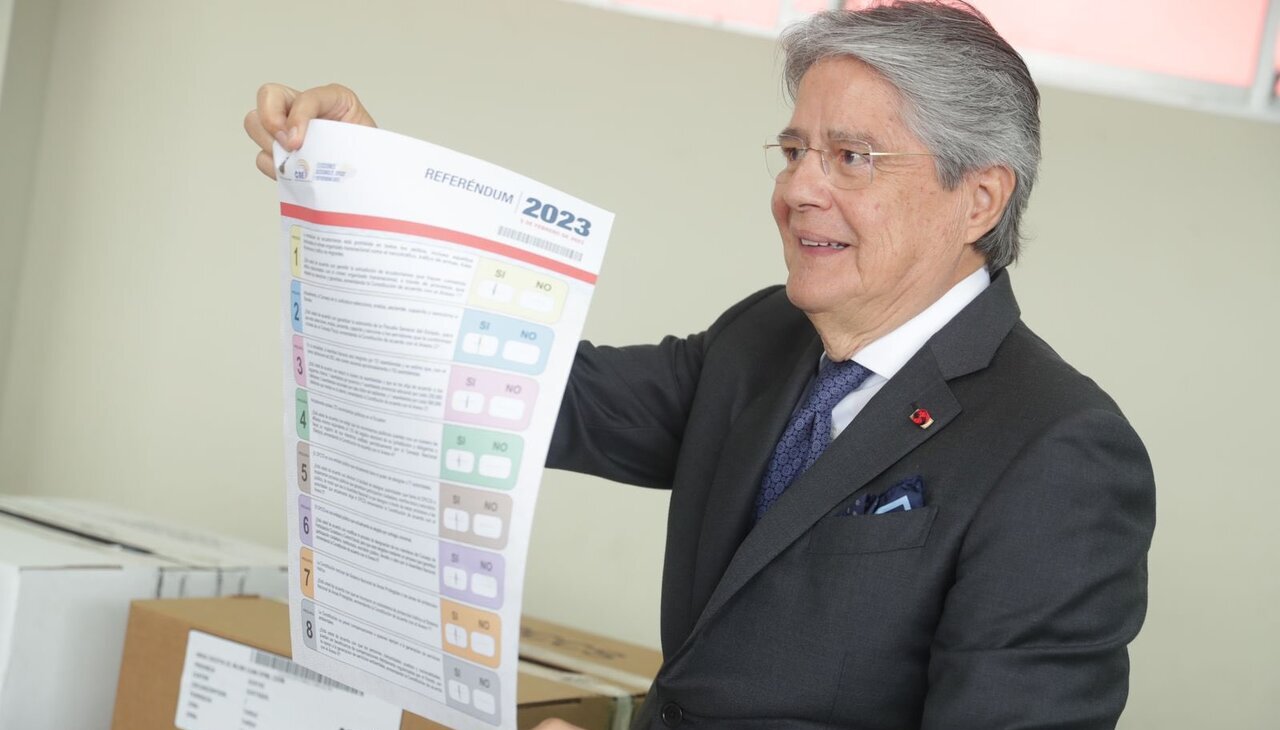
Elections in Ecuador: President Guillermo Lasso’s proposals backfire
Government-driven reforms, such as extradition and congressional cuts, did not pass.
Ecuador recently held local elections with major implications. In addition to voting for the local officials, which include mayors and councilors, and councilors on the Council for Citizen Participation and Social Control (CPCCS) — an independent body that represents civil society — Ecuadorians also voted on eight referendum questions promoted by the administration of President Guillermo Lasso.
After a vote count that was marked by its slowness, the president of Ecuador accepted defeat in the referendum on Monday, Feb. 6. The president sought to advance political, environmental, and security reforms, arguing for solutions to the unprecedented wave of violence.
Added to the setback was Lasso's party defeat in the mayoral races of Quito and Guayaquil, the main cities of Ecuador, which elected candidates with the support of former President Rafael Correa — one of Lasso's harshest critics.
Declaraciones del presidente @LassoGuillermo sobre la jornada electoral. https://t.co/zKVXDHLneM
— Comunicación Ecuador (@ComunicacionEc) February 7, 2023
Constitutional reforms
The government-sponsored referendum, which sought to amend the 2008 Constitution, divided its questions into three categories:
- Safety Promotion
- Strengthening Democracy
- Environmental Protection
According to Ecuadorian political analyst Andrés Chiriboga, who offered statements to BBC Mundo, Lasso, who has low levels of approval, was trying to "look for oxygen and take advantage of regional elections to put supposed solutions on the table to these issues, showing that it was intended to address some problems.”
RELATED CONTENT
After the results are finalized, the Electoral Council will publish them in the Official Gazette within seven days for enforcement to begin.
"No" wins
The following is how the elections against the referendum panned out, according to where reforms were sought:
Insecurity — When asked if Ecuadorians approved the extradition of criminals for transnational crimes, Lasso lost. The other question regarding security proposed that the prosecution evaluate, promote, train and sanction its own servants, a function that currently falls to the Council of the Judiciary — a measure that was also rejected by voters.
Political reforms — Four questions were included in this category. The first sought to reduce the number of assemblymembers; the second wanted to require that political movements have a minimum number of affiliates equivalent to 1.5% of the electoral registry of their jurisdiction; the third tried to prevent the Council for Citizen Participation and Social Control from appointing authorities (transferring that authority to the National Assembly); the fourth planned to modify the process for appointing members of the body, instead putting it in the hands of parliament. None were approved by voters.
Environment — This category closed the referendum with two questions. The first wanted to incorporate a water protection subsystem to the National System of Protected Areas; and the second, to guarantee compensation to people and entities that contribute to the generation of environmental services. Ecuadorians approved both of these measures.











LEAVE A COMMENT:
Join the discussion! Leave a comment.